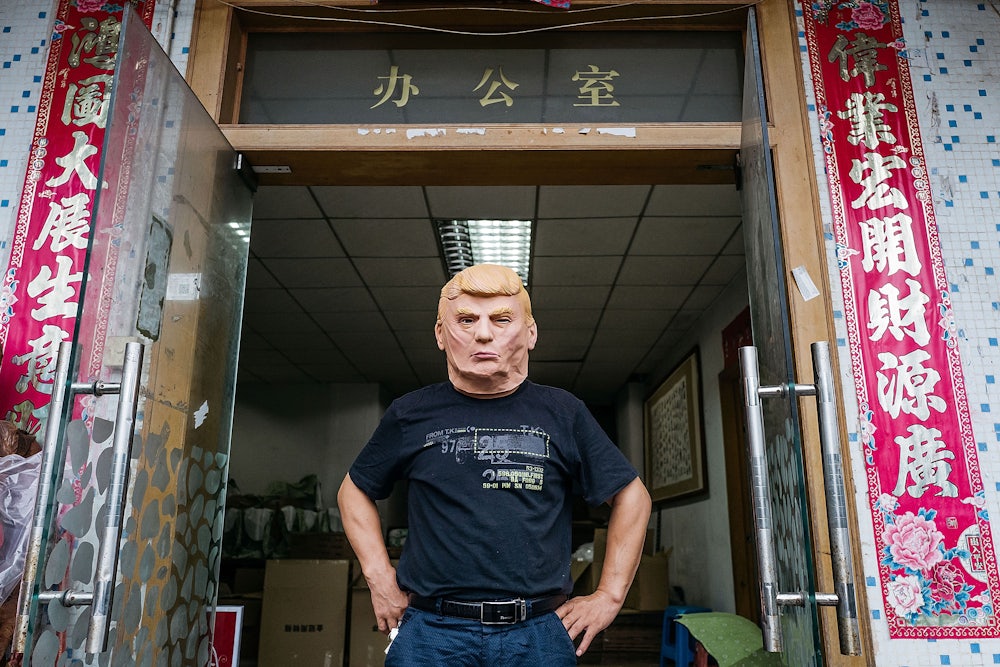Making the rounds on the Sunday news shows, two of Trump’s closest advisers—campaign manager Kellyanne Conway and incoming chief-of-staff Reince Preibus—insisted that Trump’s decision to accept a phone call from the president of Taiwan was a nothingburger. Asked by Fox News Sunday’s Chris Wallace if there was any meaning to the call, which has unsurprisingly pissed China off, Conway said, “It was just a phone call at this point.” Preibus told Face the Nation’s John Dickerson more or less the same thing, insisting that it was not a “change in policy” and that Trump did not feel like he was speaking to the “leader of a sovereign nation.”
Trump’s own defense of the phone call, tweeted out from his account on Friday, was more convincing.
Interesting how the U.S. sells Taiwan billions of dollars of military equipment but I should not accept a congratulatory call.
— Donald J. Trump (@realDonaldTrump) December 3, 2016
I wish there was a way to convey how deeply I am sighing as I write this, but Trump does have a point! The double standard here is exactly of the variety that Trump has no patience for—and his willingness to call this stuff out has always been an underrated part of his appeal.
But identifying double standards does not a foreign policy make. Like buildings and democratic institutions, diplomatic relationships are hard to build and easy to tear down. Taking a phone call—seemingly on a whim—risks jeopardizing an important, complicated relationship for no discernible political benefit. As one academic told The New York Times, “I don’t know how you are then going to expect China to cooperate on Iran and North Korea and climate change. You are going to ask Taiwan for that?”
Ironically, despite all of Trump’s talk about the importance of not tipping one’s hand during negotiations, that seems to be the only thing accomplished here.
